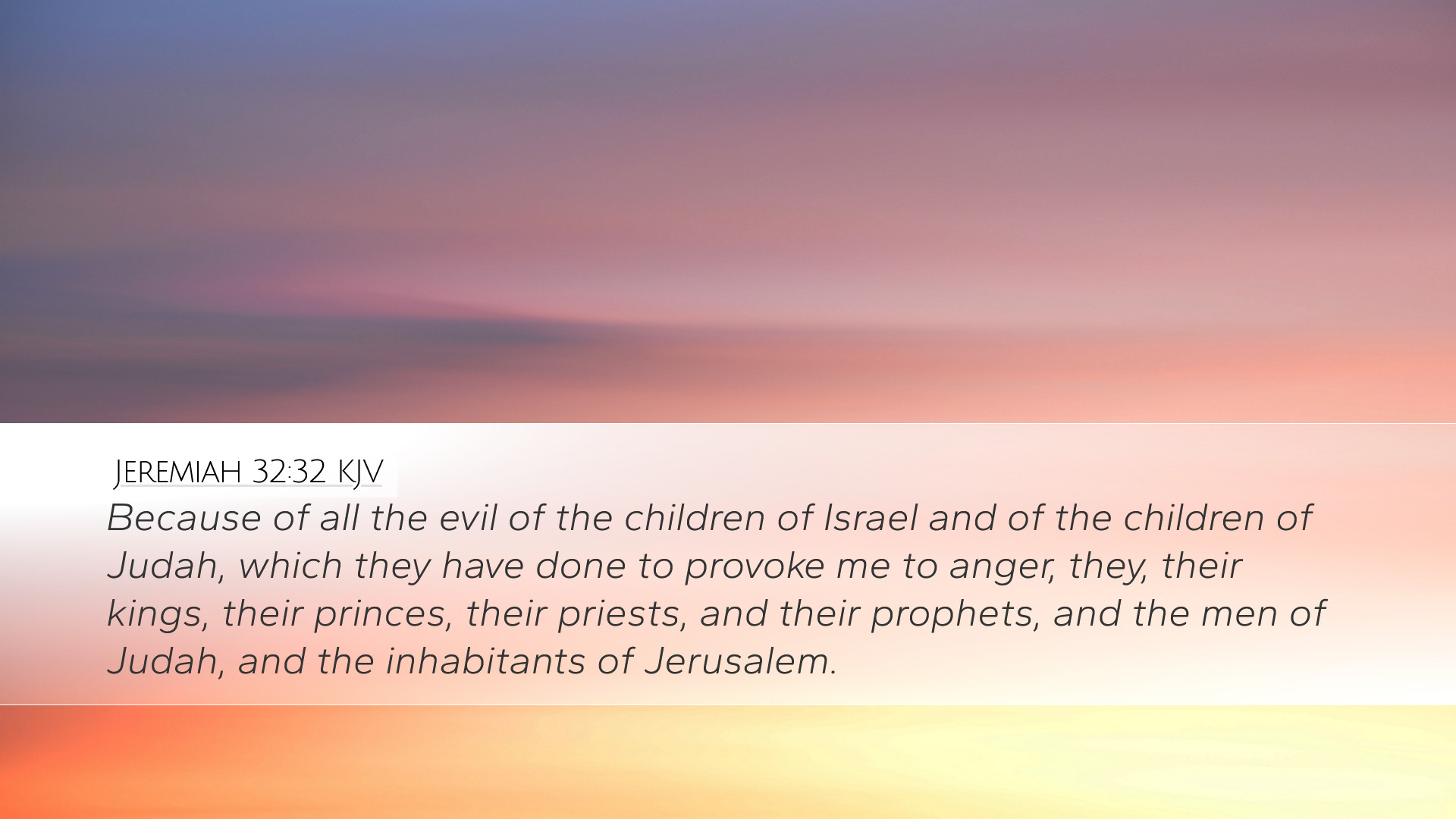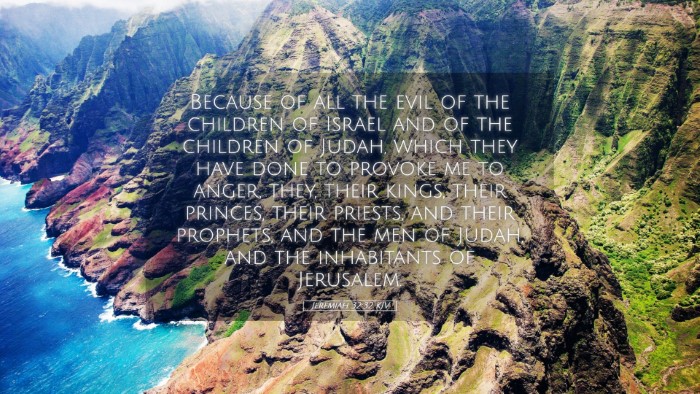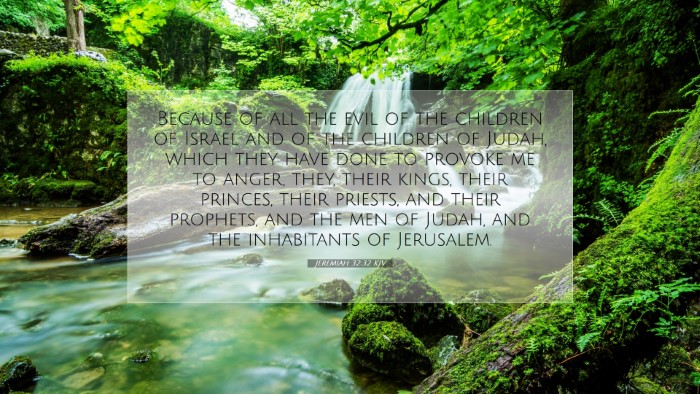Bible Commentary on Jeremiah 32:32
Jeremiah 32:32 states, "Because of all the evil of the children of Israel and of the children of Judah, which they have done to provoke me to anger, they, their kings, their princes, their priests, and the prophets, and the men of Judah, and the inhabitants of Jerusalem." This verse conveys the depth of the rebellion of Israel and Judah against God. In this commentary, various insights from public domain commentators such as Matthew Henry, Albert Barnes, and Adam Clarke will be synthesized to provide a rich understanding of its theological implications and historical context.
Historical Context
In this period, Jerusalem was under siege by the Babylonians, signifying the impending judgment of God upon His people. The verse encapsulates the totality of the rebellion, highlighting the involvement of all levels of society—from the kings to the common populace. Barnes notes that this was a time of great moral decline and idolatry, where even the leaders failed to guide the people back to righteousness.
The Scope of Evil
The phrase "all the evil" as noted by Matthew Henry signifies not merely individual sins but a comprehensive rebellion against God's law. Henry elaborates that the persistence of such evil over time provoked God’s anger, illustrating that God’s patience has limits. The cumulative effect of sin among the nations of Israel and Judah cannot be ignored, as it leads to divine judgment.
The Actors in Rebellion
The listing of various groups—kings, princes, priests, prophets, and inhabitants—shows the universal participation in sin. Albert Barnes emphasized that this communal aspect of sin was crucial; it demonstrates how leadership failed its duty. The prophets who were supposed to convey God’s message had also become part of the problem.
- Kings: Their idolatrous practices led the nation astray.
- Priests: They often associated with corrupt practices, neglecting their sacred duties.
- Prophets: Instead of denouncing sin, they falsely proclaimed peace.
- Common People: They followed the examples set by their leaders, indicating a societal moral decay.
Divine Anger and Its Rationale
God’s anger, as indicated in this verse, arises from a righteous character that cannot tolerate sin. Adam Clarke notes that understanding divine anger is crucial; it is not arbitrary but the response to a deliberate and continued course of disobedience. The nature of God’s anger serves to uphold His holiness and justice; to ignore sin would be contrary to His nature.
Lessons for Today
The teachings found in Jeremiah 32:32 resonate with present-day readers by warning against complacency in sin. Pastors and theologians can draw from this verse vital lessons about the need for collective repentance. The dangers of idolatry in modern forms—whether materialism, power, or moral relativism—are highlighted as they may provoke God’s judgment similarly, as was seen in ancient Israel.
Application
Understanding the entirety of sin within the community illustrates the importance of accountability in faith communities. Pastoral leaders must encourage transparency and truth in their congregations. It also reminds believers of their call to holiness and the urgency of pursuing righteousness in a world that often promotes contrary values.
Conclusion
Jeremiah 32:32 serves as a sobering reminder of the dire consequences of collective sin against a holy God. It challenges contemporary believers to examine their own lives and communities in light of God’s character and desires for holiness. This commentary synthesizes vital insights from esteemed biblical scholars, providing a framework for understanding and applying the truth of this powerful verse.


